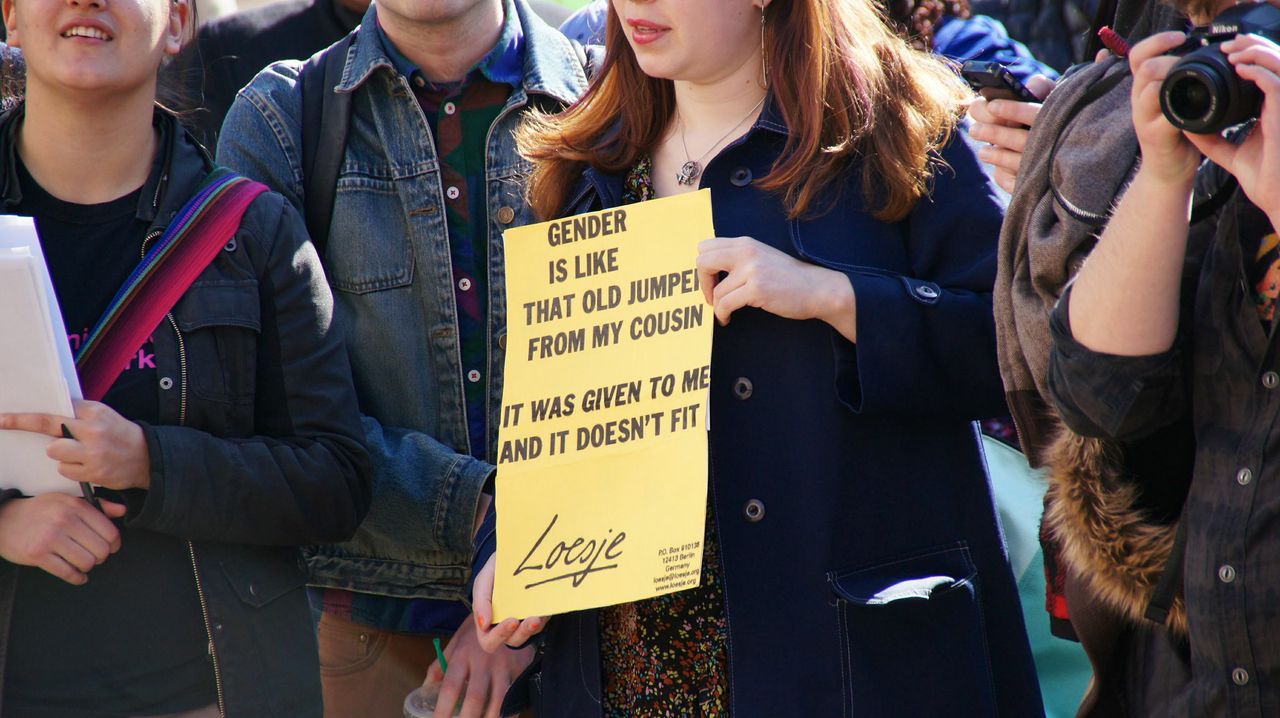The Sunday comic strips are goofy, but making fun of marginalized groups isn’t making us laugh
There was good news and bad news for trans people recently:
The good news is that there was not one, but two comic strips dealing with trans issues published. The bad news is that the more popular comic comic dealt with the issue in such poor taste that it raises into question what should (or shouldn’t) be protected by free speech.
The comic in question, Mallard Fillmore, was published in many major newspapers between Oct. 2 and 4. These strips were based on the news that Mount Holyoke College, a women’s institute, would begin admitting transgendered individuals who identify as women. Instead of treating the issue with the respect it deserves, as a milestone event in human rights, author Bruce Tinsley decided to make things ‘funny.’
Humour was derived through comparing individuals who “identify as women” with admitting people based on their identification as “really smart”, men who commit violence against men, and men who identify as a toaster oven.

Gabrielle Bouchard, peer support and trans advocacy coordinator with the Centre for Gender Advocacy, explains the danger of such material. “We like to laugh … at most bullying — it hides bigotry behind ‘humour.’”
Not only does this appeal to our funny bone, but humour in our society is something intended to be shared, communicated, and reproduced. Comedy then allows the opinion being presented to spread through the population in the most incongruous of ways.
This is not the first time that such off-colour humour is implemented in the media. Bouchard notes that this is the latest in a long line of bigotry and marginalization masquerading as comedy. She points out that its lineage runs through the portrayal of African Americans in the nineteenth century, the stereotype of the Indian corner store owner, and the overly effeminate homosexual man.
Conversations around controversial issues often implement the author’s use of free speech. Bouchard advises that in such issues “it’s so easy to use freedom of speech against minorities” as it “takes away from [the] responsibility as human beings to be nice to others.”
Eventually, this humour will be driven away by greater awareness and sensibility towards trans people. As in the above examples listed, humour surrounding these stereotypes are now considered in extremely poor taste.
Although examples like Mallard Fillmore exist, they do so alongside web comics such as Questionable Content who deal with transgendered subject matter with more tact. In a strip which ran on Oct. 8, two main characters, a man and a woman, discuss their possible romantic relationship in light of her being trans. He states meekly that he doesn’t know what to say, all of their interactions together feel natural, and that they should figure things out as they need to.
As summarized by Bouchard it “talks about care, self-determination, consent, and love.” The result is a very honest, genuine, and tender look at real life and at love.
How then can we move towards more comics like Questionable Content in our popular media? Contact your newspaper of choice and demand changes. Newspapers periodically review the comics they are printing for audience appeal. If strips such as Mallard Fillmore are receiving negative reviews, they will be dropped and replaced with other, more market-friendly content.
Like with groups who were marginalized before, making fun of trans issues will fall out of fashion. In the meantime, maybe we should speed the process along.





I couldn’t agree more.. I’ve hated Mallard Filmore for eons..I think the only reason my local paper carries it, is because they have to be fair and balanced in their coverage…I assume they think this anger monger(Tinsley) represents the conservatives…I hope not, but hemust represent some, else he would disappear..